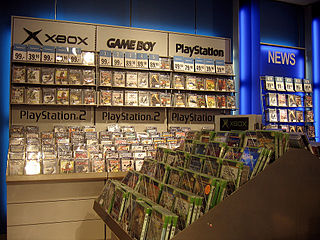Review: ‘Of Games and God’
 A nonfiction author hopes to explore video games for God’s glory. From Gospel Coalition book reviewer Richard Clark:
A nonfiction author hopes to explore video games for God’s glory. From Gospel Coalition book reviewer Richard Clark:
The debate about the nature and validity of video games has been, for the most part, bungled by both sides. Knee-jerk reactions depend on secondhand impressions and assumptions. Many Christians see video games as a waste of time with no payoff, a series of murder simulators, or an insipid means of escapism that distracts from real-life problems. Those who play them often respond to these sentiments defensively, countering with thoughtless insistence that violent video games are “just games” and that those crying “addictive” and “escapist” are merely voicing fear based in ignorance.
[…]
In his new book, Of Games and God, Kevin Schut, associate professor and chair of the department of media and communication at Trinity Western University in Langley, British Columbia, deals seriously with criticisms like these, addressing not so much the overreaching language but the assumptions behind them. And he does so with a large measure of grace, humility, and nuance.
The simple truth is that those not significantly invested in the world of video games often lack a point of reference to understand and interpret this artistic culture. Rather than condemning those who have genuine concerns about this new medium, however, Schut takes the time to work through what they may have missed—as well as the places where their impressions may be correct.
Clark also name-checks Seattle pastor Mark Driscoll for Driscoll’s markedly unthoughtful and, frankly, immature reactions to games.
(I only rarely enjoy games myself, but Driscoll’s “basement dwelling nerd” stereotypes are easily spied from my happily married, above-ground, independently financed home.)
Read the full review here, or explore Of Games and God on Amazon.





























I haven’t played a video game in about ten years. So I’m pretty certain the evolution of my perspective along the spectrum from “What a waste of time!” to “Hmm … maybe there’s value there after all” hasn’t been motivated by a sense of defensiveness. Here’s the question that’s forced me to reevaluate my prejudice:
What’s the effectual difference between a video game and a book?
The answer is, I’m afraid, “Not a whole lot.” Yeah, yeah, I know that books force the mind to develop their own imagery rather than passively ingest a previsualized world, that the reading of books increases literacy, and that the works of countless authors can enrich humanity’s understanding of itself and of its Maker. But really, aside from that last positive (which is not a given — indeed, is a rare literary exception), what are these qualities good for other than more reading? As far as I’m aware, the argument for reading basically boils down to something along the lines of “You’ve gotta read so you can be a better reader!” Circular reasoning if I ever saw it.
And addiction? Ha! I can’t speak for anyone else, but I’m not so self-unaware that I can’t admit how powerful my reading addiction can be. It blacks me out from human interaction for hours — days — at a time. The pull is strong indeed. And, being as I am a spec-fic fan, what am I doing during those hours and days? Why, living in a fantasy world! The exact same thing for which I hear gamers being constantly reviled. It’d be the height of hypocrisy were I to join the chorus.
Now, I still believe the ability to read and write is vastly more important than the ability to navigate a virtual world or even to create such a world. And I believe our society is worse off now that it’s almost completed its transition from a word-based culture to an image-based culture. I believe we’ll regret exchanging a shared emphasis on meaning for a shared emphasis on appearance. But those are tentative, theoretical beliefs, and they have nothing whatsoever to do with violence, laziness, or addiction — the supposed demons of video games.